
Question: How is it that Butch doesn't get his hand back but Galavan's sister has full control over hers even though it was sliced off?

Question: In the first season, Hastings tells Arnott he's Catholic - but then in subsequent seasons he's supposed to be a Mason. Except the Catholic church considers joining the Masons to be a sin - is that a clue to Hastings' real status?
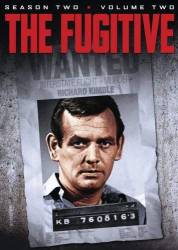
Tiger Left, Tiger Right - S2-E6
Question: The episode first aired October 1964. How could a Ford Mustang be seen in the episode if that car wasn't available until April 1965?
Answer: Production vehicle models aren't in sync with the calendar year. The '65 Mustang began production in March 1964 and first sold in April 1964, before it was "introduced" the following year. I don't know which model was seen in the episode, but the 2+2 fastback was sold in September 1964. The 1964 film "Goldfinger" uses a 1965 Mustang as part of Ford's product placement. Basically, in the 1930's, FDR ordered automakers to release vehicles in the fall of the preceding calendar year "as a means of facilitating regularization of employment in the industry." Now, automakers can release new models as early as Jan 2 of the preceding year.

Question: When Sam reads someone their rights why does someone else tell him he's saying it wrong? This happens few times in different episodes.
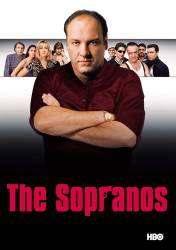
Question: When the not-so-dead Russian gets away from his pursuers, what happened to him? It seems to be implied that he doubled back and drove away in their car, but it was never really explained. Incidentally, there is no way that scene was filmed in the real Jersey Pine Barrens.
Answer: The show creators intentionally left it ambiguous as to what happened to Valery.

Swords into Ploughshares - S2-E7
Question: When the girls and Rosemary's mother go to the mortuary to see who was impersonating Rosemary, Rosemary's mother says just before they see the body, "It's just a waste of time me going home, really." What does she mean?
Chosen answer: Maybe she thinks she's so old that she'll be back in the mortuary soon, so why go home?
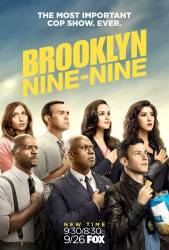
Question: Over several episodes we see Captain Holt in competition with other Captains for the position of Commissioner. However, we have seen several Deputy Commissioners on the show. Is Commissioner a position that only Captains are eligible for? Are Deputy Commissioners ineligible? How realistic is this?
Answer: In reality, the Commissioner is a civilian administrator, appointed by the mayor of New York City. He (as of this writing, the role has always been filled by a man; the show gets that part right) is usually someone who has risen through the ranks of the NYPD, but upon becoming Commissioner, is no longer a sworn member of the force (the highest sworn rank is that of Chief). Since Commissioners are appointed, technically anyone can serve in the position, including Deputy Commissioners (who are appointed, in turn, by the Commissioner himself).
Update: On 1 January 2022, Keechant Sewell became the first ever female commissioner of the NYPD.
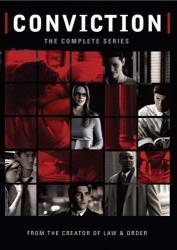
Question: On Law & Order: SVU the character Alex Cabot had to enter the witness protection program. How did they bring her back for the show Conviction?
Answer: It was never explained on the show. The series only lasted 13 episodes so they didn't have time to go into how or why Cabot returned.
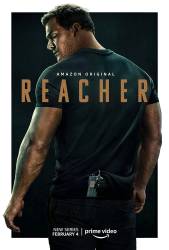
Question: Why did the police arrest Reacher? He was simply passing through.
Answer: As Reacher had arrived in town just after the murder occurred and being a stranger, he became a suspect (or at least a person of interest) and taken into custody for questioning by the police. He was released fairly quickly. It was coincidental timing of an outsider arriving at the same time as the crime occurred.

Kevin Jensen - S1-E2
Question: Scottie says she lost her son when he was four, but wasn't it when he was three years old? (00:12:01)
Answer: Yes, in the "Blacklist" series, it's said Christopher was 3 when he disappeared.

Question: Why does Poirot claim to be an American citizen when being interrogated by customs?
Answer: He definitely says "Belgian", but the subtitles get it wrong and show him saying "American."
Answer: It sounds a bit like "American", but listen very closely and you will hear "Belgian".
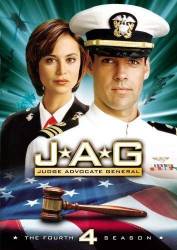
Question: In the episodes where Harm flies F-14s, what does it mean when pilots are told to "call the ball"?
Chosen answer: When landing on an aircraft carrier, a pilot "calls the ball" by confirming to the landing signal officer (LSO) that they have the carrier, and more specifically its landing guidance systems in sight. Carriers use a Fresnel lens system which is a light only visible at a certain angle, so if a pilot sees the "ball" they are at the correct altitude and glide slope for landing.
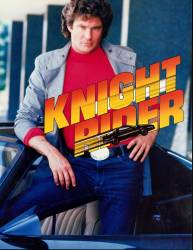
Knight Rider [Pilot; a.k.a. Knight of the Phoenix] (1) - S1-E1
Question: At one point, after promising help, Michael parks, and goes to a pay phone to call Devon. As he gets to the booth, over his left shoulder, there is a badly altered Pepsi sign. Black tape has been put over the word 'PEPSI' in the familiar logo, and also over the "si" in the phrase 'say Pepsi please'. What type of mistake would this be?
Chosen answer: Before "product placement" became common, name-brand products were rarely, if ever seen in TV shows, mostly due to avoid advertising conflicts with program sponsors. The Pepsi logo may have been taped out to prevent any commercial infringements.
Are you kidding? Product placement was so rampant in the 50s that sometimes you'd wonder if you were watching a TV show or a paid ad.
Knight Rider wasn't produced in the 1950s. TV shows of that era had advertising more similar to the old radio shows from the 30s and 40s. The early 50s series often had a sole sponsor, so their product (and related items) was likely seen in a program. An announcer also informed the audience at the beginning that, "This program is brought to you by (insert brand name). " From the 60s on, brand-name products weren't generally seen in TV programs. Networks sold air time to multiple advertisers, and their ads were shown during the long commercial breaks. So no, I'm not kidding.
Answer: It wouldn't be a mistake. Anyone could have taped the sign for a number of reasons.
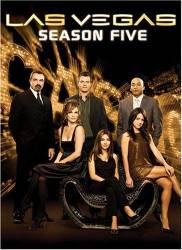
Question: What's the name of the "theme" song, the one played at the beginning of every episode?
Answer: It is a version of "A Little Less Conversation" by Elvis Presley.
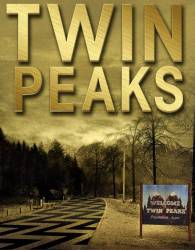
Question: Why and how is Laura Palmer killed?
Chosen answer: Laura was killed by her father Leland, whilst he was apparently possessed by the spirit BOB. The exact manner of her murder is not clear, as several injuries found during her autopsy we later discover occurred during a separate incident before her murder. We know that she was beaten and killed in an abandoned train car, and her body was then wrapped in plastic and thrown in the river.
Answer: Why? Because her father was possessed by an evil entity. How? Blunt force trauma.

Hit and Run - S2-E5
Question: Towards the end of this episode the squad car has to double park so Regan can use a phone box, as Regan gets out of the car a van has to drive round the squad car and the driver sounds the horn, Regan gesticulates and shouts "up yours" at the van driver. I wonder if this was scripted or was a random moment and John Thaw was ad-libbing?
Answer: Scripted.
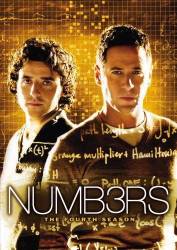
Question: After explaining why it is illogical to play the lottery, Charlie asks the FBI agent if he ever plays craps. I didn't get the joke. Any help?
Answer: Craps is a casino game where players bet on the outcome of a dice roll. It deals heavily with probabilities and is a favorite of math experts like Charlie. Whatever the odds, though, your chances of winning are much greater than winning the lottery.
If you bet against the roller in craps, your odds of winning are about 49%, which is as good as you get in Vegas. The point he's making (though it's pretty obscure) is that if you're going to bet, you may as well bet on something where you have a slim chance of winning, as opposed to the lottery, where your chances are basically 0.
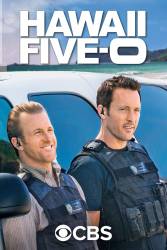
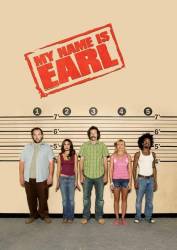

Answer: Tabitha got her hand sewn back on, Butch didn't.